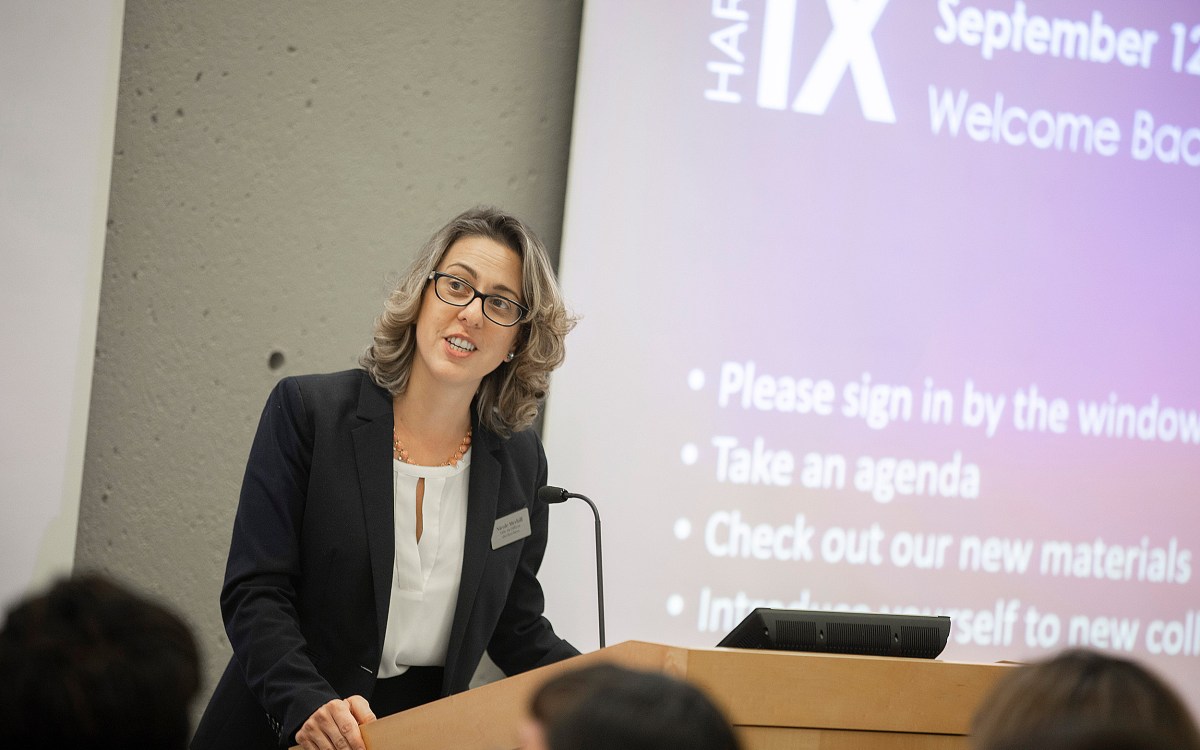
Rose Lincoln/Harvard Staff Photographer
A response to proposed Title IX changes
State’s higher-education association, with Harvard input, affirms dedication to environment ‘free from discrimination and harassment’
With input from Harvard and other universities and colleges across the state, the Association of Independent Colleges and Universities in Massachusetts (AICUM) submitted written comments this week to the U.S. Department of Education (DOE), responding to its proposed changes to Title IX, the law that prohibits sex discrimination in schools that receive federal funds.
“There are no greater priorities for Massachusetts colleges and universities than the well-being of their students, faculty, and staff, as well as the safety of their campuses,” said AICUM President Richard Doherty. “AICUM’s member institutions remain dedicated to providing a learning and working environment that is free from discrimination and harassment, including on the basis of sex, as contemplated by Title IX.”
The comprehensive comments submitted by AICUM called into question the ability of the DOE’s proposed regulations to provide for such an environment on campuses. Concerns raised by AICUM on the proposed regulations include their potential to deter victims from coming forward to report harassment, and the ability of colleges and universities to exercise discretion in carrying out processes that are fair and responsive to their unique communities.
Harvard has worked to ensure, as President Larry Bacow said in a Dec. 6 letter to the Harvard Community, “that our concerns are properly conveyed by higher education associations that are planning to submit public comments.” In his letter, Bacow assured community members that “I will not rest until Harvard has done all that it can to prevent sexual and gender-based harassment and assault, and to encourage people to share their concerns with confidence in the institution’s ability to act on them.”
The Association of American Universities (AAU), of which Harvard is a member, also provided feedback to the DOE this week on its proposed changes to Title IX. The AAU’s comments were similarly concerned with how proposed amendments would adversely affect the ability of colleges and universities to respond fairly to instances of alleged sexual harassment and assault.
In November, the DOE published its proposed amendments to Title IX regulations. They include a narrower definition of what constitutes sexual harassment and assault, and changes to the standard of evidence used during investigations. As drafted, the regulations would require colleges and universities to investigate incidents that occur only within the scope of campus-sanctioned events or activities, and an adviser to the accused would have the opportunity to cross-examine an accuser. Witnesses could also be cross-examined. A 60-day comment period, which will close on Jan. 30, followed publication of the proposed amendments.
“Creating a community in which all of us can do our best work is my highest priority as president,” Bacow wrote in December. “Everyone who calls this University home should be made to feel welcome and free from harassment, and each of us has an important role to play in ensuring that outcome. It will take sustained effort to make Harvard a place where our respect for one another infuses every aspect of our work.”








